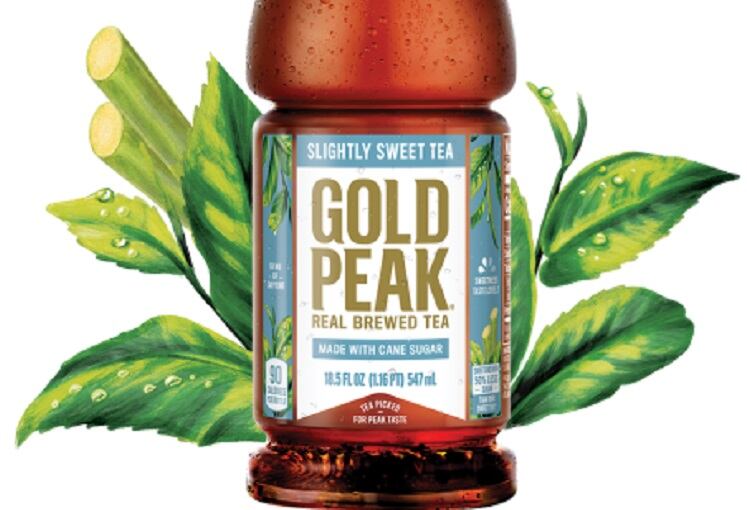In a lawsuit* filed in February 2020 - one of a series of complaints taking issue with terms such as ‘sorta sweet,’ ‘slightly sweet,’ and ‘lightly sweetened’ - plaintiff Amanda Mazella argued that a reasonable consumer would infer from the ‘slightly sweet’ claim that the tea is low in sugar and low in calories.
“In purchasing and consuming the Product, consumers are misled to believe they are consuming products which are low in added sugars when the Product is high in added sugars,” said Mazella, who is represented by New York-based attorney Spencer Sheehan, best-known for his ‘vanilla’ lawsuits.
“Defendant’s branding and packaging of the Product is designed to – and does – deceive, mislead, and defraud plaintiffs and consumers.”
Coca-Cola: ‘Slightly Sweet is a subjective statement about the product’s taste. It says nothing about sugar or calorie content'
Coca-Cola, which is not commenting on the lawsuit, argued in court filings that the calorie count for the 'slightly sweet' variant of Gold Peak tea (90 cals) is listed prominently on the front of the pack, while the back of the label “plainly and accurately discloses the beverage’s sugar and calorie content.”
‘Slightly Sweet,’ added Coca-Cola’s attorneys, “is a subjective statement about the product’s taste. It says nothing about sugar or calorie content, and no reasonable consumer would think otherwise.”
Judge: The label clearly states sugar and calorie content
In an order dismissing the case filed late last month, United States District Judge Nelson S Roman sided with Coca-Cola, arguing that Mazella “has not plausibly alleged that ‘Slightly Sweet’ on the product label would cause a reasonable consumer to assume that it is “low sugar’ and thus low calories.”
He added: “Courts have also found that the presence of a disclaimer or similar clarifying language, such as a Nutrition Fact Panel, may defeat a claim of deception. The label of the Product includes information about the Product’s sugar content and the number of calories the Product contains.”
No legal definition of 'low sugar'
Given that the FDA has not defined ‘low sugar,’ and there is no legal definition of terms such as ‘sorta sweet,’ ‘slightly sweet,’ ‘just a tad sweet,’ or ‘lightly sweetened,’ lawsuits addressing claims about sugar content have hinged upon arguments about whether ‘reasonable consumers’ might be misled.
In 2019, Kellogg agreed to settle a class action lawsuit alleging it falsely advertised some ‘lightly sweetened’ cereals as healthy and nutritious. As part of the settlement, it agreed to remove the phrase ‘Lightly Sweetened’ from Frosted Mini-Wheats and Smart Start for at least three years.
However, a similar case against General Mills was dismissed by a different judge, who argued that consumers “cannot plausibly claim to be misled about the sugar content of their cereal purchases because defendant provided them with all truthful and required objective facts about its products, on both the side panel of ingredients and the front of the products’ labeling.” Meanwhile, a near identical case vs Clif Bar was allowed to proceed.
Attorney: 'There is no direct correlation between sweetness and the amount (or even the presence) of sugar in foods or beverages'
Adam Fox, partner at Squire Patton Boggs, who represented much of the US sugar industry in litigation against the makers of Splenda and—in a subsequent lawsuit—high fructose corn syrup, told FoodNavigator-USA earlier this year that while consumer survey data may help identify consumer perception, the "allegations of falsity regarding the marketing claims targeted in these cases appear facially implausible."
Sweetness is an aspect of taste that can be "generated by multiple different sources" as well as sugar, including zero calorie non-nutritive sweeteners such as stevia, he noted: "There is no direct correlation between sweetness and the amount (or even the presence) of sugar in foods or beverages."
*The case is Mazella v. The Coca Cola Company 7:20-cv-05235, filed in the U.S. District Court for the Southern District of New York in February 2020.
CSPI: FDA should define 'low sugar'
While there is no legal definition of 'low sugar,' FDA guidance (p90) says the term ‘low sugars’ is "not defined," and “may not be used.”
Terms such as ‘slightly sweet' are synonyms of the prohibited term 'low sugars,' and should not be permitted either, claims health advocacy group the Center for Science in the Public Interest (CSPI), which has urged the FDA to issue regulations authorizing ‘low added sugar’ claims on products with 3g or less per serving.
The FDA only sets conditions of use for ‘reduced/less/lower sugar’ nutrient content claims, which are permitted on products containing at least 25% less sugar per reference amount customarily consumed than an appropriate reference food.

